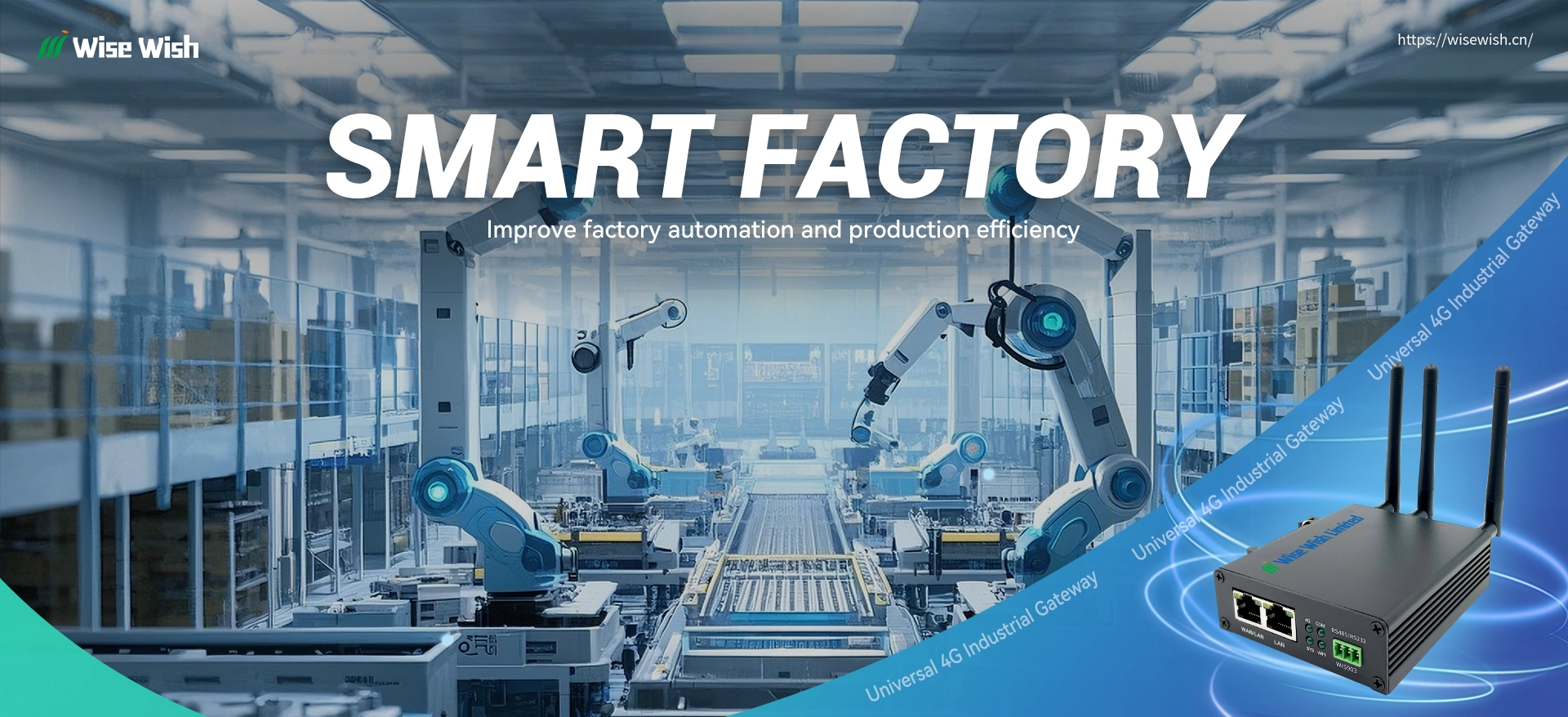
4G industrial routers enable digital transformation of factories
4G industrial routers are key components in smart factories for device interconnection, real-time data transmission, and remote monitoring. Their high reliability, strong environmental adaptability, and secure stable performance meet the stringent requirements of industrial scenarios. Here’s an analysis of specific application scenarios and advantages:

▶ Core Application Scenarios
1. Device Networking and Data Collection
- PLC/Sensor Integration: Connect dispersed PLCs, sensors, and instruments to cloud MES/SCADA systems via 4G networks, collecting real-time production data (temperature, vibration, energy consumption, etc.).
- Legacy Equipment Upgrade: Add serial-to-4G modules (e.g., RS485 to 4G) to traditional equipment without network ports, enabling cost-effective digital upgrades.
2. Remote Monitoring and Maintenance
- Equipment Status Monitoring: Transmit real-time equipment operating parameters, triggering anomaly alarms (e.g., overload, failure) to reduce unplanned downtime.
- AR Remote Assistance: Engineers access high-definition video streams via 4G networks to guide on-site personnel in rapid problem diagnosis.
3. Mobile Device and AGV Scheduling
- AGV/AMR Communication: Provide stable wireless connections for mobile robots, ensuring real-time synchronization of scheduling instructions and location information.
- Handheld Terminal Applications: Inspection personnel use tablets or industrial phones to query/report data in real-time, improving operational efficiency.
4. Edge Computing Collaboration
- Local Preprocessing: Some industrial routers have built-in edge computing capabilities, filtering and compressing data before uploading to reduce cloud load (e.g., FFT analysis of vibration data).
5. Environmental and Energy Management
- Smart Meter Networking: Monitor factory energy consumption in real-time, optimizing energy allocation.
- Environmental Monitoring: Connect gas sensors to dynamically report emission data to regulatory platforms.
▶ Core Advantages of 4G Industrial Routers
1. Industrial-Grade Reliability
- Wide temperature design (-40°C to 75°C), dust and water resistance (IP65), EMC interference resistance, suitable for high-temperature, oily, and vibrating workshop environments.
- Dual SIM redundancy: Support primary and backup SIM card switching to ensure uninterrupted network connectivity.
2. Security Protection
- VPN encryption (IPSec/OpenVPN), firewall, whitelist filtering to prevent data leakage or malicious intrusion.
- Data breakpoint continuation: Locally cache data during network interruptions, automatically retransmitting upon recovery.
3. Flexible Deployment
- No wiring required, quickly covering remote areas (e.g., outdoor warehouses, distributed production lines), reducing deployment time by over 70%.
4. Protocol Compatibility
- Support industrial protocols such as Modbus TCP/RTU, OPC UA, MQTT, seamlessly integrating with mainstream PLCs (Siemens, Mitsubishi, etc.).
4G industrial routers play the role of “nerve endings” in smart factories. Their wireless, low-latency characteristics form the infrastructure for building flexible production lines and digital factories.